Well folks, it’s not often that we’re treated to back-to-back Criterion Collection releases, so we have to celebrate them each and every time. Last week we were hit with three incredible DVD and Blu-ray releases: Revanche, Lola Montes, and Hunger. This week, we are treated to a very special DVD release: Leo McCarey’s Make Way for Tomorrow.
I haven’t seen the film yet (it’s currently sitting at the top of my Netflix queue), so I can’t yet confirm Errol Morris’ thoughts on the film:
“The most depressing movie ever made, providing reassurance that everything will definitely end badly.”
Sounds fun right? Over the past year and half, as the economy has devolved into its current state, many have looked back to the depression of the 192os & 30s for a glimpse at how society copes with its troubles through art. It feels oddly appropriate then for Criterion to release Make Way for Tomorrow as America prepares for tax season.
Along with Leo McCarey’s film, we’re also getting a new box set from Criterion’s Eclipse line, collecting three films written by the esteemed playwright, George Bernard Shaw. We haven’t covered the Eclipse releases much in our episodes, mostly due to our own time constraints, as each box set represents considerably more hours of film watching. We are working hard to make it so that we can release bonus episodes for each of the Eclipse Box Sets, so look for that one day hitting your podcast catcher.
Are you picking up either of these releases today? What are you looking forward to next month from Criterion?
Make Way for Tomorrow
Leo McCarey
Leo McCarey’s Make Way for Tomorrow is one of the great unsung Hollywood masterpieces, an enormously moving Depression-era depiction of the frustrations of family, aging, and the generation gap. Victor Moore and Beulah Bondi headline a cast of incomparable character actors, starring as an elderly couple who must move in with their grown children after the bank takes their home, yet end up separated and subject to their offspring’s selfish whims. An inspiration for Ozu’s Tokyo Story, Make Way for Tomorrow is among American cinema’s purest tearjerkers, all the way to its unflinching ending, which McCarey refused to change despite studio pressure.
Add Make Way for Tomorrow to your Netflix Queue.
Disc Features
- New, restored high-definition digital transfer
- Tomorrow, Yesterday, and Today, a new video interview featuring filmmaker Peter Bogdanovich discussing the career of Leo McCarey and Make Way for Tomorrow
- New video interview with critic Gary Giddins in which he talks about McCarey’s artistry and the political and social context of the film
- PLUS: A booklet featuring new essays by critic Tag Gallagher and filmmaker Bertrand Tavernier, and an excerpt from film scholar Robin Wood’s 1998 piece ‘Leo McCarey and ‘˜Family Values”
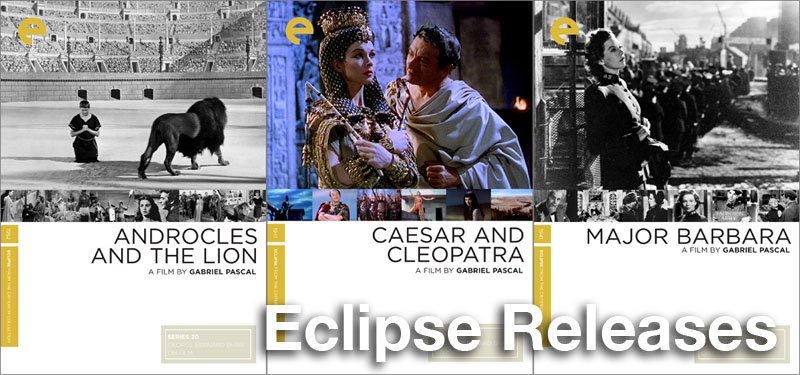
The hugely influential, Nobel Prize’“winning critic and playwright George Bernard Shaw was notoriously reluctant to allow his writing to be adapted for the cinema. Yet thanks to the persistence of Hungarian producer Gabriel Pascal, Shaw finally agreed to collaborate on a series of screen versions of his witty, socially minded plays, starting with the Oscar-winning Pygmalion. The three other films that resulted from this famed alliance, Major Barbara, Caesar and Cleopatra, and Androcles and the Lion, long overshadowed by the sensation of Pygmalion, are gathered here for the first time on DVD. These clever, handsomely mounted entertainments star such luminaries of the big screen as Vivien Leigh, Claude Rains, Wendy Hiller, and Rex Harrison.
Major Barbara
Gabriel Pascal, 1941
Wendy Hiller plays one of George Bernard Shaw’s most memorable and controversial characters, Barbara Undershaft, a Salvation Army officer who speaks out against the hypocrisy she believes exists in her Christian charity organization.
Caesar and Cleopatra
Gabriel Pascal, 1945
Vivien Leigh and Claude Rains pop off the screen in vivid Technicolor in Gabriel Pascal’s version of Shaw’s 1901 play about love and politics in ancient Rome and Egypt.
Androcles and the Lion
Chester Erskine, 1952
George Bernard Shaw’s breezy, delightful dramatization of this classic fable’”about a Christian slave who pulls a thorn from a lion’s paw and is spared from death in the Colosseum as a result of his kind act’”was written as a meditation on modern Christian values.




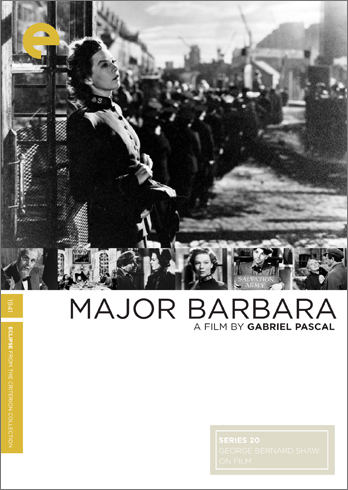
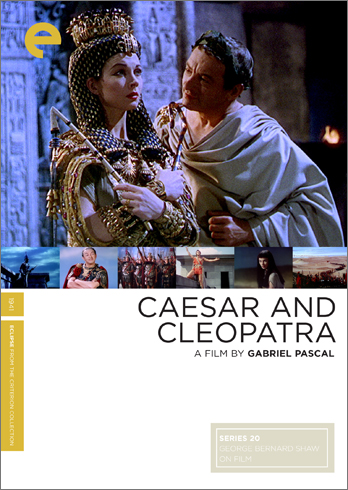


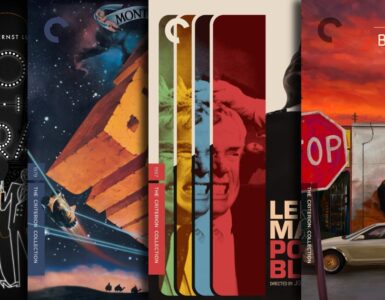
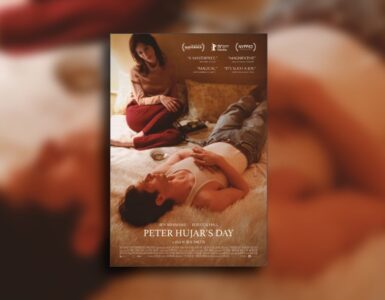

1 comment